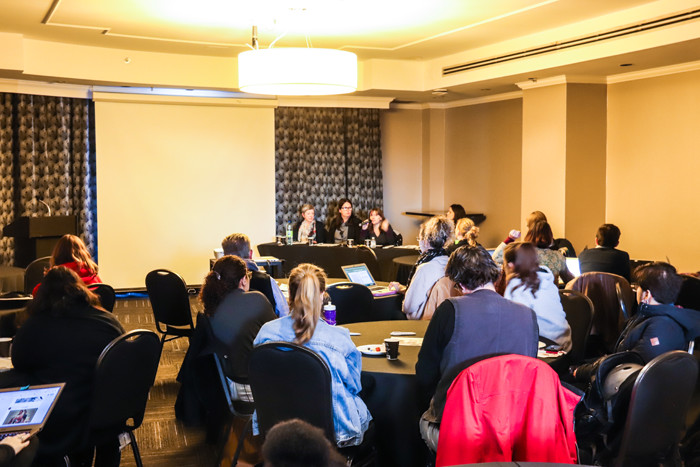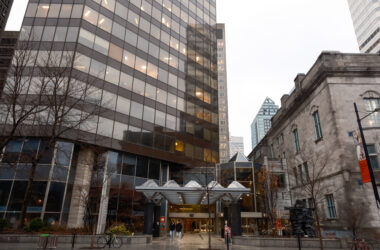McGill University hosted its fifth annual Consent McGill Campaign Sept. 24-Oct. 5, addressing the topics of consent, healthy relationships, and sexual violence in a series of on-campus events. The campaign is the annual initiative of the Office for Sexual Violence Response, Support, and Education (O-SVRSE), an administrative body tasked with educating the McGill community about sexual harassment and supporting survivors.
This year, the campaign featured trauma-sensitive yoga sessions, a movie screening of Pariah (2011) followed by a discussion in honour of McGill’s first Queer History Month, and a performance of the play Don’t Read the Comments, which explores the ambiguity surrounding consent and sexuality. O-SVRSE hosted multiple workshops in which participants learned about consent culture, acquired tools for responding to sexual violence disclosures, and received instruction on how to become active bystanders.
Bianca Tétrault and Émilie Marcotte, campaign coordinators and sexual violence advisors at O-SVRSE, are striving to develop new methods to support the recovery of sexual assault survivors at McGill.
“Along with other centres of resources, we are looking at creating more material, [such as] tool kits for faculty members and staff to address and respond to disclosures of sexual violence and problematic behaviours in the classrooms, from either students or professors,” Tétrault said.
The closing event of the campaign, the Panel on Sexual Harassment and the Law in a University Context, featured an all-female panel discussion of the reporting mechanisms available to members of the McGill community seeking healing and justice. Tétrault and Marcotte brought together McGill General Counsel Line Thibault, Julie Dumontier from the Commission on Human Rights and Youth Rights (CDPDJ), Lili Luisa Lepore from the Commission for Standards, Equity, Health and Safety at Work (CNESST), and Sophie Lamarre from the Office of the Director of Criminal and Penal Prosecutions.
McGill’s Policy against Sexual Violence provides a framework for people to address sexual misconduct by disclosing, seeking support, or reporting incidents for the purpose of an investigation. However, following criticisms from students and professors over a lack of accessibility, the university is currently in the process of improving its response by launching a committee on student-teacher relationships and has hired a special investigator to oversee sexual violence complaints. During the discussion, Thibault underlined the ways in which McGill’s legal policies already support individuals seeking legal action with regard to sexual violence.
According to Thibault, the University’s policy is designed to favour victims of sexual assault by requiring a lower standard of evidence for initiating institutional action than is necessary for sexual assault cases processed by the Canadian legal system.
“McGill’s Commission use[s] a method called the ‘valence of probability,’ which means the University applies its policy at a much lower threshold [of proof],” Thibault said. “If the event [more] likely than not occurred, [McGill University] will act.”
The Quebec Charter Of Human Rights and Freedoms categorizes sexual harassment as a form of discrimination, which is defined as “any conduct that manifests itself through unwanted words or actions that are offensive or degrading for the victim.” According to Dumontier, since the charter protects fundamental rights, it applies to all aspects of life, meaning that the CDPDJ, a body of the Quebec government mandated to advise the public on conducting investigations with respect to human and youth rights complaints, has jurisdiction in most instances of sexual harassment.
“The Charter prohibits all forms of harassment in all interactions,” Dumontier said. “Therefore, the Commission can protect anyone within the university’s walls. However, it’s still McGill’s responsibility to make sure you are safe and free of harassment.”









